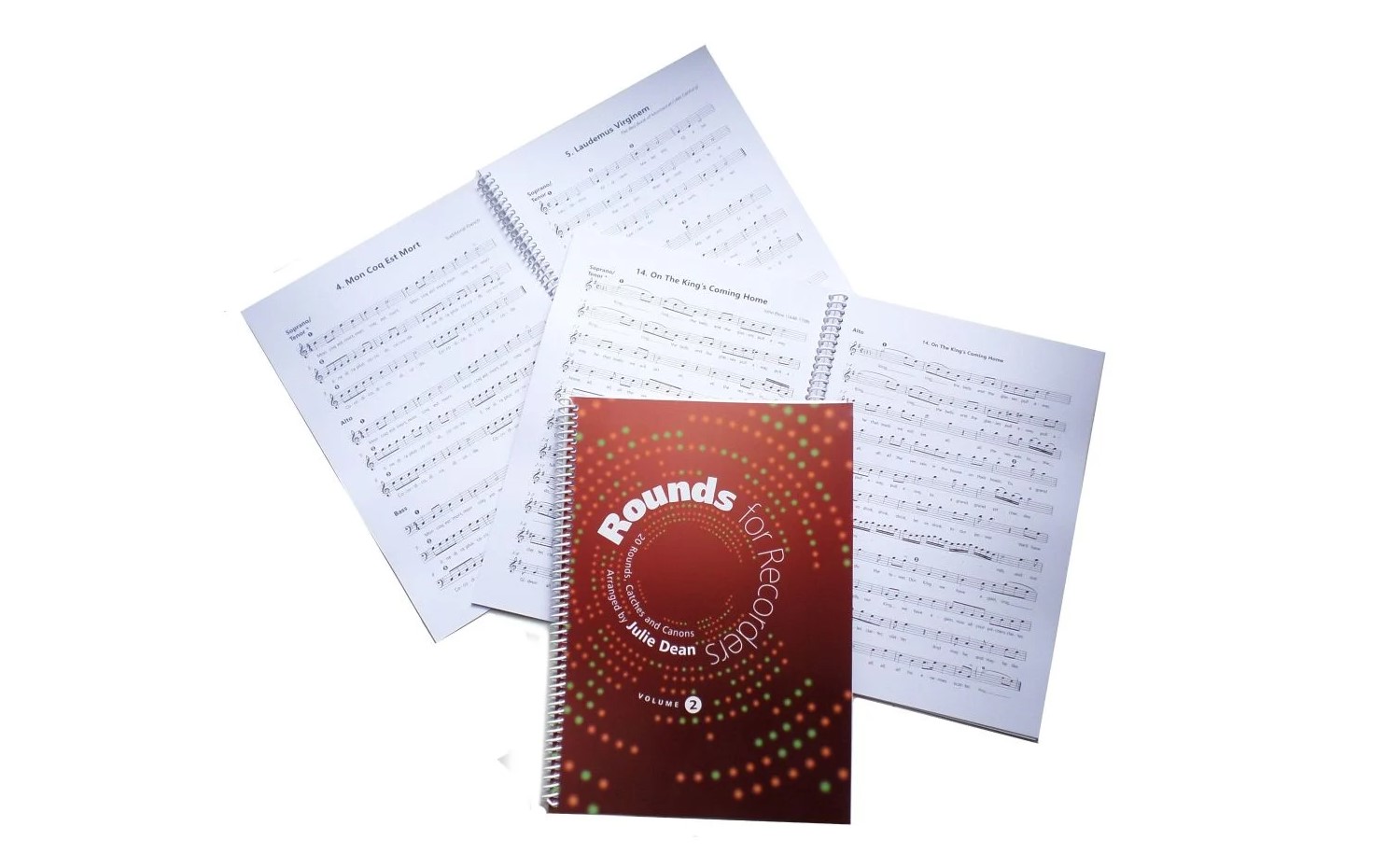Home>Production & Technology>Songwriter>How Can You Sell Songs As A Songwriter


Songwriter
How Can You Sell Songs As A Songwriter
Published: February 25, 2024
Learn how to sell your songs as a songwriter and maximize your earnings. Discover effective strategies for selling your music in today's industry.
(Many of the links in this article redirect to a specific reviewed product. Your purchase of these products through affiliate links helps to generate commission for AudioLover.com, at no extra cost. Learn more)
Table of Contents
Introduction
As a songwriter, you possess a unique ability to craft melodies and lyrics that resonate with audiences on a profound level. Your compositions have the power to evoke emotions, tell stories, and capture the essence of the human experience. However, the journey from creating a song to selling it in the music industry can be complex and multifaceted. This article aims to guide you through the process of selling your songs as a songwriter, providing valuable insights and strategies to help you navigate the competitive landscape of the music business.
Throughout this article, you will gain a comprehensive understanding of the music industry and learn how to build a strong network of connections that can open doors to opportunities for selling your songs. You will discover effective marketing techniques to promote your compositions and attract potential buyers, whether it be music publishers, artists, or other industry professionals. Additionally, you will explore the option of selling songs independently and leveraging streaming platforms to reach a wider audience.
Furthermore, collaborating with artists and producers can be a pivotal strategy for selling your songs, and this article will delve into the benefits of such partnerships. You will also gain valuable insights into protecting your rights as a songwriter, ensuring that you receive proper recognition and compensation for your creative work.
By delving into these key aspects of the songwriting and music industry, you will be equipped with the knowledge and tools to navigate the path to selling your songs effectively. Whether you are a seasoned songwriter or just beginning to explore the possibilities of commercializing your compositions, this article will provide valuable guidance to support your journey in the music business. So, let's embark on this exciting exploration of the intricacies of selling songs as a songwriter, and uncover the strategies that can elevate your craft to new heights of success.
Understanding the Music Industry
The music industry is a dynamic and multifaceted landscape that encompasses a wide array of professionals, including songwriters, artists, producers, music publishers, and record labels. Understanding the intricate workings of this industry is essential for songwriters aiming to sell their compositions effectively.
At its core, the music industry revolves around the creation, promotion, distribution, and monetization of music. It is a highly competitive environment driven by creativity, innovation, and commercial viability. Songwriters play a pivotal role in this ecosystem, as their compositions form the foundation of the entire industry.
The industry is constantly evolving, influenced by technological advancements, changing consumer behavior, and market trends. Digital platforms and streaming services have revolutionized the way music is consumed, presenting both opportunities and challenges for songwriters seeking to sell their songs.
Furthermore, the music industry operates within a complex framework of copyright laws, licensing agreements, and royalty structures. Understanding these legal and financial aspects is crucial for songwriters to protect their intellectual property and ensure fair compensation for their work.
Navigating the music industry also requires an understanding of the various stakeholders involved, including music publishers, A&R representatives, managers, and performing rights organizations. Building relationships with these industry professionals can open doors to opportunities for song placement, licensing deals, and collaborations with established artists.
Moreover, the music industry is deeply interconnected with popular culture, entertainment media, and live performance sectors. Songwriters must stay attuned to current trends, audience preferences, and market demands to create songs that resonate with potential buyers.
In essence, understanding the music industry involves grasping its intricate dynamics, embracing technological advancements, navigating legal and financial frameworks, and staying abreast of cultural and market trends. By gaining insights into these key aspects, songwriters can position themselves strategically to sell their songs effectively and thrive in the ever-evolving music business.
Building Your Network
Building a strong network of connections is a fundamental aspect of success in the music industry. As a songwriter, establishing meaningful relationships with industry professionals, fellow songwriters, artists, and music enthusiasts can open doors to a myriad of opportunities for selling your songs. Networking is not merely about making contacts; it is about fostering genuine connections based on mutual respect, trust, and shared passion for music.
One of the most effective ways to expand your network is by immersing yourself in the local music scene. Attend live performances, open mic nights, and music industry events to connect with like-minded individuals who share your love for music. Engage in conversations, exchange ideas, and seek out potential collaborators who resonate with your creative vision. These interactions can lead to valuable partnerships and opportunities to showcase your songwriting prowess.
Utilizing social media platforms is another powerful tool for expanding your network. Establish a strong online presence by sharing your compositions, engaging with fellow musicians, and participating in music-related discussions. Platforms such as LinkedIn, Instagram, and Twitter can serve as virtual hubs for connecting with music industry professionals, artists, and potential buyers. Additionally, joining online communities and forums dedicated to songwriting and music production can provide valuable networking opportunities and insights into industry trends.
Attending music conferences, workshops, and seminars offers a wealth of networking prospects. These events bring together industry experts, artists, and aspiring songwriters, creating an environment conducive to forging new connections and gaining valuable industry insights. Take advantage of these opportunities to introduce yourself, share your work, and exchange contact information with individuals who show genuine interest in your compositions.
Furthermore, building a network of contacts within the music publishing and licensing sector can significantly enhance your prospects of selling your songs. Connecting with music publishers, A&R representatives, and licensing agents can lead to potential placements for your compositions in films, TV shows, commercials, and other media. Cultivating these relationships requires professionalism, persistence, and a keen understanding of the specific needs and preferences of potential buyers.
In essence, building your network as a songwriter involves actively engaging with the music community, leveraging online platforms, and seizing opportunities to connect with industry professionals. By nurturing these connections with authenticity and passion, you can position yourself for success in selling your songs and advancing your career in the music industry.
Marketing Your Songs
Marketing your songs is a crucial aspect of selling your compositions in the music industry. Effective marketing strategies can elevate your songs, capture the attention of potential buyers, and create opportunities for commercial success. As a songwriter, showcasing your compositions in a compelling and strategic manner can significantly impact your ability to sell your songs and establish your presence in the industry.
One of the most powerful marketing tools for songwriters is the creation of a professional and engaging online presence. Establishing a dedicated website or a well-crafted social media profile can serve as a digital showcase for your songs, allowing potential buyers and industry professionals to discover and explore your compositions. Utilize these platforms to share high-quality recordings, engaging visuals, and compelling narratives that convey the essence and emotional depth of your songs. Additionally, leveraging platforms such as SoundCloud, YouTube, and Spotify can expand the reach of your music and attract a broader audience, including potential buyers and collaborators.
Engaging in targeted outreach to music publishers, artists, and industry professionals is an essential component of marketing your songs. Craft personalized and compelling pitch packages that highlight the unique qualities of your compositions and articulate how they can add value to potential projects or collaborations. Tailoring your outreach efforts to align with the specific preferences and needs of potential buyers demonstrates professionalism and a deep understanding of the industry landscape. Furthermore, participating in industry events, showcases, and songwriting competitions can provide valuable exposure for your songs, attracting the attention of industry insiders and potential buyers.
Collaborations with artists and producers can serve as a powerful marketing tool for selling your songs. By forging partnerships with established or emerging artists, you can leverage their platform and fan base to introduce your compositions to a wider audience. Additionally, working with reputable producers to create high-quality recordings of your songs can enhance their marketability and appeal to potential buyers, including music publishers and licensing agents.
Incorporating storytelling and visual elements into your marketing efforts can create a compelling narrative around your songs, resonating with potential buyers on an emotional level. Whether through music videos, behind-the-scenes footage, or personal anecdotes about the inspiration behind your compositions, storytelling can enrich the marketing of your songs and establish a deeper connection with your audience.
In essence, marketing your songs as a songwriter involves leveraging digital platforms, targeted outreach, collaborations, and storytelling to elevate the visibility and appeal of your compositions. By implementing these strategies with creativity, authenticity, and a deep understanding of your target audience, you can effectively market your songs and increase your prospects of selling your compositions in the competitive landscape of the music industry.
Working with Music Publishers
Collaborating with music publishers can be a pivotal strategy for songwriters seeking to sell their compositions in the music industry. Music publishers play a crucial role in the commercialization and promotion of songs, acting as intermediaries between songwriters and potential buyers such as recording artists, film and TV producers, and advertising agencies. Working with music publishers presents a range of benefits and opportunities for songwriters to showcase their compositions and secure lucrative deals.
One of the primary advantages of partnering with music publishers is the access to an extensive network of industry contacts and potential buyers. Established music publishers have established relationships with recording artists, record labels, and media production companies, enabling them to pitch and promote songs to a wide range of potential buyers. By leveraging the publisher's network, songwriters can increase the visibility and marketability of their compositions, positioning them for potential placements in commercial projects, films, and TV shows.
Furthermore, music publishers offer valuable expertise in the areas of licensing, copyright, and royalty collection. They can assist songwriters in navigating the complex landscape of music licensing, ensuring that their compositions are properly protected and monetized. Additionally, publishers can handle the administrative aspects of royalty collection, licensing negotiations, and synchronization rights, allowing songwriters to focus on their creative endeavors while their compositions are effectively marketed and monetized.
Collaborating with music publishers also provides songwriters with opportunities for co-writing sessions and creative collaborations. Publishers often facilitate introductions and connections between songwriters, fostering collaborative partnerships that can lead to the creation of compelling and commercially viable compositions. These collaborations not only expand the songwriter's creative horizons but also increase the potential for selling songs to a broader range of artists and projects.
Moreover, music publishers can offer financial advances to songwriters in exchange for the rights to represent and exploit their compositions. These advances can provide songwriters with much-needed financial support, allowing them to continue pursuing their craft while the publisher works to secure placements and licensing opportunities for their songs.
In essence, working with music publishers offers songwriters access to a wealth of industry connections, expertise in licensing and royalty collection, opportunities for creative collaborations, and potential financial advances. By forging strategic partnerships with reputable music publishers, songwriters can enhance their prospects of selling their compositions and establishing a foothold in the competitive and dynamic landscape of the music industry.
Selling Songs Independently
Selling songs independently empowers songwriters to take control of their creative output and directly engage with potential buyers without the involvement of music publishers or intermediaries. This approach offers a range of opportunities for songwriters to showcase their compositions, negotiate favorable deals, and retain greater autonomy over their artistic vision and financial outcomes.
One of the key advantages of selling songs independently is the ability to maintain creative control and ownership of the compositions. By bypassing traditional music publishing routes, songwriters have the freedom to dictate the terms of their song placements, licensing agreements, and royalty structures. This level of autonomy allows songwriters to preserve the integrity of their artistic vision and ensure that their compositions are presented and marketed in alignment with their creative intent.
Moreover, selling songs independently enables songwriters to directly engage with potential buyers, including recording artists, independent filmmakers, content creators, and advertising agencies. By leveraging digital platforms, social media, and personal networks, songwriters can showcase their compositions to a global audience, attracting the attention of potential buyers who resonate with their musical style and lyrical content. This direct engagement fosters authentic connections between songwriters and buyers, leading to personalized negotiations and agreements that reflect the unique value of the compositions.
Utilizing online music marketplaces and licensing platforms can expand the reach and visibility of independently sold songs. Platforms such as Bandcamp, SoundClick, and Music Vine provide avenues for songwriters to showcase and sell their compositions directly to artists, content creators, and media producers. These platforms offer songwriters the opportunity to set their own pricing, licensing terms, and distribution channels, granting them full control over the commercialization of their songs.
Furthermore, independently selling songs allows songwriters to retain a higher percentage of the earnings generated from their compositions. By eliminating the commission fees typically associated with music publishers and intermediaries, songwriters can maximize their financial returns and reinvest in their creative endeavors. This financial autonomy empowers songwriters to sustain their artistic careers and pursue future projects with greater financial stability and creative freedom.
In essence, selling songs independently empowers songwriters to maintain creative control, engage directly with potential buyers, leverage online music marketplaces, and retain a higher percentage of their earnings. This approach offers a pathway for songwriters to commercialize their compositions on their own terms, embracing autonomy, creative freedom, and financial independence in the dynamic landscape of the music industry.
Leveraging Streaming Platforms
Leveraging streaming platforms presents a compelling opportunity for songwriters to showcase their compositions, expand their audience reach, and generate revenue in the digital era of music consumption. Streaming platforms such as Spotify, Apple Music, and Amazon Music have revolutionized the way music is distributed, discovered, and monetized, offering songwriters a powerful avenue to commercialize their songs.
By strategically leveraging streaming platforms, songwriters can tap into a global audience of music enthusiasts, reaching listeners across diverse demographics and geographic locations. These platforms serve as virtual stages for songwriters to present their compositions to a vast and diverse audience, transcending traditional barriers and geographical limitations. Through strategic playlist placements, targeted promotions, and engaging content, songwriters can attract the attention of streaming platform users, cultivating a loyal fan base and increasing the visibility of their songs.
Moreover, streaming platforms offer songwriters the potential to generate revenue through streaming royalties and performance-based compensation. As users stream songs, songwriters earn royalties based on the number of plays, providing a continuous stream of income as their compositions resonate with audiences worldwide. Additionally, participation in curated playlists and algorithm-driven recommendations can amplify the exposure of a songwriter's compositions, leading to increased streaming activity and subsequent financial rewards.
Collaborating with streaming platform curators and playlist editors can enhance the visibility and discoverability of a songwriter's compositions. By submitting songs for consideration in genre-specific playlists, mood-based compilations, and editorial curation, songwriters can position their compositions in front of engaged listeners who are actively seeking new music experiences. Strategic collaborations with streaming platforms can amplify a songwriter's reach and introduce their compositions to audiences that align with their artistic style and thematic content.
Furthermore, leveraging streaming platforms empowers songwriters to gather valuable insights into audience engagement, geographic distribution, and listener preferences. Analytical tools provided by streaming platforms offer songwriters a comprehensive understanding of their audience demographics, playback patterns, and geographic hotspots. This data-driven approach enables songwriters to refine their marketing strategies, tailor their promotional efforts, and make informed decisions to maximize the impact of their compositions on streaming platforms.
In essence, leveraging streaming platforms presents a transformative opportunity for songwriters to showcase their compositions, reach a global audience, generate revenue through royalties, collaborate with platform curators, and gain valuable insights into audience engagement. By harnessing the power of streaming platforms, songwriters can position their compositions for success in the digital landscape of music consumption, leveraging technology to amplify their creative impact and commercial prospects.
Collaborating with Artists and Producers
Collaborating with artists and producers can be a transformative strategy for songwriters seeking to sell their compositions in the dynamic landscape of the music industry. These partnerships offer a myriad of opportunities to elevate the appeal, marketability, and commercial prospects of a songwriter's compositions, fostering creative synergy and expanding the reach of their music.
Working with artists to co-write or co-produce songs can infuse a fresh creative energy into the songwriting process. Collaborative efforts often lead to the creation of compositions that resonate with a broader audience, incorporating diverse perspectives, musical styles, and lyrical nuances. By aligning with artists whose artistic vision complements their own, songwriters can co-create compositions that capture the zeitgeist and resonate deeply with potential buyers, including recording artists, music publishers, and licensing agents.
Furthermore, collaborating with producers can elevate the production quality and sonic appeal of a songwriter's compositions. Producers bring technical expertise, industry connections, and a nuanced understanding of market trends, enhancing the commercial viability of the songs. By partnering with experienced producers, songwriters can refine their compositions, create compelling arrangements, and produce high-quality recordings that captivate potential buyers and stand out in a competitive market.
Collaborations with established or emerging artists offer songwriters access to a wider audience and fan base. Artists bring their platform, social media presence, and live performance opportunities to the table, providing valuable exposure for the songwriter's compositions. This exposure can attract the attention of music publishers, A&R representatives, and industry professionals seeking fresh and captivating songs for their projects, leading to potential placements and commercial opportunities.
Moreover, collaborating with producers can open doors to industry connections and opportunities for song placements. Producers often have established relationships with music supervisors, advertising agencies, and media production companies, creating pathways for the songwriter's compositions to be featured in films, TV shows, commercials, and other media projects. These collaborations can lead to lucrative licensing deals, synchronization opportunities, and increased visibility for the songwriter's music.
In essence, collaborating with artists and producers empowers songwriters to expand their creative horizons, enhance the production quality of their compositions, access a wider audience, and forge valuable industry connections. By embracing these collaborative partnerships with openness, creativity, and a shared passion for music, songwriters can elevate the appeal and commercial potential of their compositions, positioning themselves for success in the competitive landscape of the music industry.
Protecting Your Rights as a Songwriter
Protecting your rights as a songwriter is paramount in ensuring that your creative work is respected, acknowledged, and monetized in the music industry. As the creator of original musical compositions, you are entitled to certain legal protections and financial benefits that safeguard your intellectual property and artistic contributions. Understanding and actively safeguarding your rights as a songwriter is essential for navigating the complex landscape of music publishing, licensing, and commercialization.
One of the primary mechanisms for protecting your rights as a songwriter is through copyright registration. Registering your songs with the relevant copyright authorities establishes legal proof of ownership and provides a basis for pursuing legal action in the event of copyright infringement. By securing copyright protection for your compositions, you gain the exclusive right to reproduce, distribute, perform, and license your songs, ensuring that you have control over how your music is used and monetized.
Additionally, joining a performing rights organization (PRO) such as ASCAP, BMI, or SESAC can further safeguard your rights and facilitate the collection of performance royalties. PROs act as intermediaries between songwriters and music users, ensuring that you receive fair compensation when your compositions are performed publicly, broadcasted, or streamed. By registering your songs with a PRO, you can maximize your earnings from public performances and ensure that your music is properly licensed and monetized across various platforms.
Furthermore, understanding music publishing agreements and licensing contracts is crucial for protecting your rights and securing fair compensation for your compositions. When entering into publishing deals or licensing agreements, it is essential to carefully review the terms, retain ownership of your copyrights whenever possible, and negotiate favorable royalty rates and usage terms. By exercising diligence and seeking legal counsel when necessary, you can protect your rights as a songwriter and ensure that your creative work is valued and compensated equitably.
Embracing proactive measures to protect your rights also involves monitoring and enforcing the usage of your compositions. Utilizing digital rights management tools, monitoring platforms, and legal resources can help you identify unauthorized use of your music and take appropriate action to address infringements. By actively monitoring the usage of your songs and pursuing legal recourse when necessary, you can assert your rights as a songwriter and uphold the integrity and value of your creative output.
In essence, protecting your rights as a songwriter involves proactive steps such as copyright registration, affiliation with performing rights organizations, understanding music publishing and licensing agreements, and actively monitoring and enforcing your rights. By embracing these measures, you can safeguard your intellectual property, maximize your financial returns, and ensure that your contributions to the music industry are respected, valued, and protected.
Conclusion
In conclusion, the journey of selling songs as a songwriter is a multifaceted and dynamic endeavor that requires a deep understanding of the music industry, strategic networking, effective marketing, and proactive protection of one's rights. As a songwriter, navigating this landscape involves embracing creativity, innovation, and a proactive approach to commercializing your compositions.
Understanding the intricate dynamics of the music industry is foundational to the success of selling songs. It entails grasping the evolving trends, legal frameworks, and the interconnected network of industry professionals. By staying attuned to these factors, songwriters can position themselves strategically to leverage opportunities and navigate the competitive landscape of the music business.
Building a strong network of connections within the music community is pivotal for songwriters. Genuine relationships with industry professionals, artists, and fellow songwriters can open doors to collaborations, placements, and valuable insights. Actively engaging in the local music scene, leveraging social media platforms, and participating in industry events are essential strategies for expanding one's network and fostering meaningful connections.
Effective marketing of songs involves leveraging digital platforms, targeted outreach, and collaborations to elevate the visibility and appeal of compositions. By crafting compelling narratives, engaging with potential buyers, and strategically showcasing their work, songwriters can attract the attention of industry professionals and position their compositions for success in the market.
Collaborating with music publishers, artists, and producers offers diverse pathways for commercializing songs. From accessing industry networks to enhancing production quality and reaching a wider audience, these collaborations can amplify the commercial prospects of a songwriter's compositions and open doors to lucrative opportunities.
Protecting one's rights as a songwriter is fundamental to ensuring fair compensation and recognition for creative contributions. Through copyright registration, affiliation with performing rights organizations, and proactive enforcement of usage rights, songwriters can safeguard their intellectual property and maximize their financial returns.
In essence, the journey of selling songs as a songwriter is a dynamic and rewarding pursuit that demands a blend of creativity, strategic acumen, and a proactive approach to navigating the music industry. By embracing these insights and strategies, songwriters can elevate their craft, expand their reach, and position themselves for success in the ever-evolving landscape of music commercialization.











